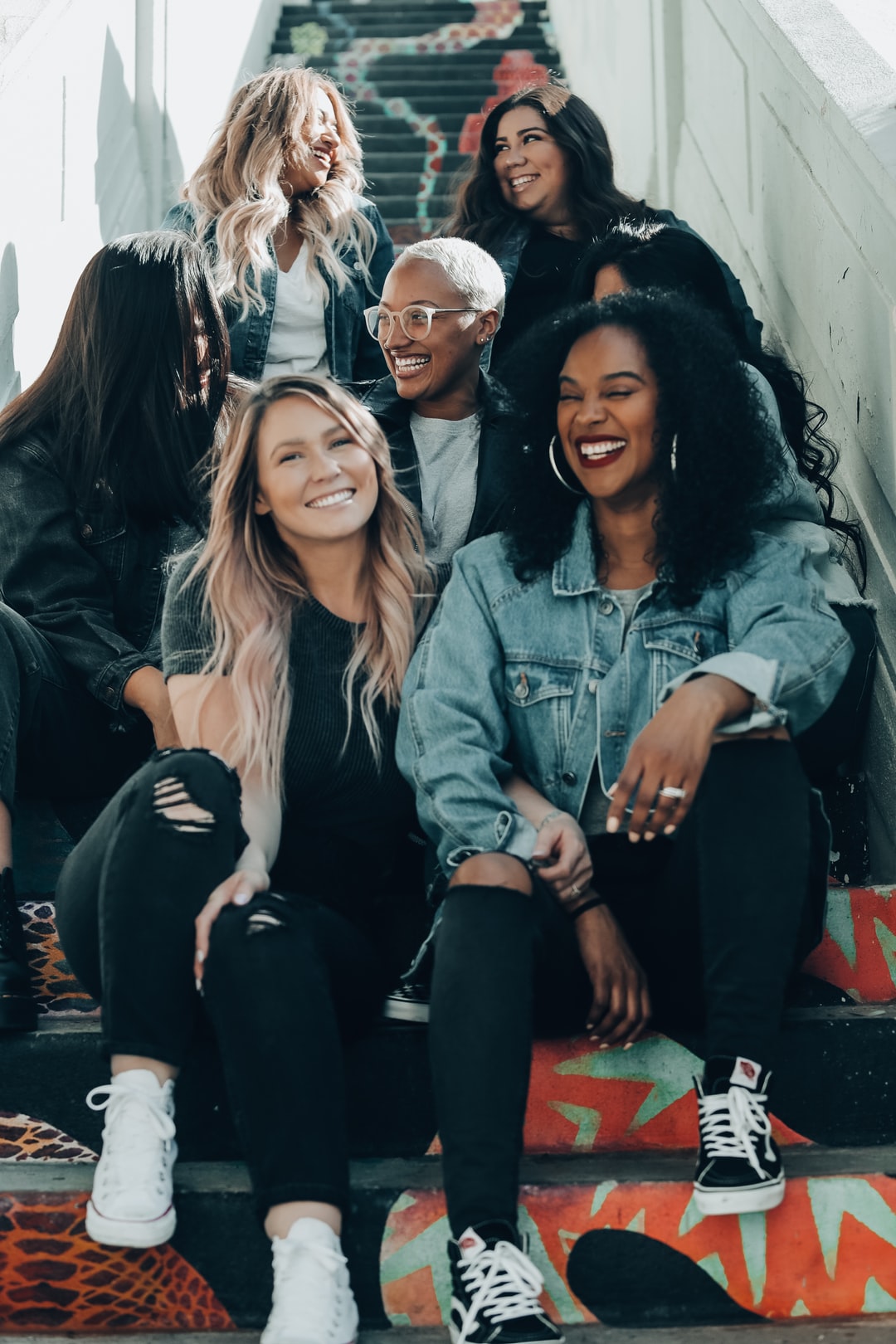International Women’s Day is coming up on March 8th and this year’s theme is #breakthebias. I am hosting a free event and all are welcome where a community of voices will be heard from a diverse group of women. What better way to begin breaking biases than hearing stories from women who have experienced a variety of situations where both conscious and unconscious bias were present and how it impacted them. You will get to hear from women of all backgrounds and at all stages and ages of their life. They will share their wisdom and may even challenge all of us with a bold ask to progress us forward so we can break the bias.

As a women’s leadership coach, I hear from my clients all the time a cross section of circumstances where bias has affected them in their career, leadership, and business. Why is this year’s IWD theme so important not just for women to speak about, but also for everyone to learn from so we can progress?
Bias is a prejudice in favor or against a person or group in comparison to another usually in a way considered to be unfair. The best example of bias is the fact that women who hold the same experience, job title, and responsibilities as a male is still paid on average 20-25% less and unfortunately for some ethnic groups such as latino or african woman, the pay disparity is even larger. If that does not answer why this conversation about bias is so important, there are a number of other reasons.
- Bias can be unconscious and only when it becomes conscious, can we progress with it
- The more we have this conversation, the more leaders and others will work to #breakthebias
- Bias can only be changed in those who hold it, create it, have power over it, or influence it
- Breaking bias cannot be done by women alone, we need men to stand with us and be a voice for it
- Empowerment, education, and engagement on this topic will advance all of us forward
- Everyone plays a role in many moments all throughout our work days and in our interactions
- The awareness of talking about bias can create a culture of holding people accountable to biases
I would like to point out a not so obvious bias and then share some of the biases women around me have experienced to highlight when it happens and how it can affect the women in your life. There may be, by some people, a bias around what a leader should look, sound, and be like; perhaps people see a typical leader being someone of a certain larger size, tall or otherwise, maybe strong or with a powerful presence. Some people still perceive masculine traits as those of a worthy leader including women with masculine traits that may include: competitiveness, boldness, achievement oriented, and what many describe as ‘alpha’ mannerisms.
Yet, I ask you to check your possible bias around these traits and ask yourself, “What are some of the best traits you have seen in leaders and who have been your best leaders and did they take a specific look, shape, personality, or have the alpha mannerisms?” Could someone of a different size, perhaps petite, or who was more feminine, or rather than being competitive, bold, and alpha was able to work alongside and with the people. Could this also be a leader with a different approach?
Examples of Everyday Biases Women Face in Work and Life
Here are some of the situations, circumstances, and experiences the women I know have had around bias:
- A working mom who already works at an organization goes for an interview to become a leader and the panel is three men and one women and not one of them is a parent. The work culture there is to get the work done no matter what and no matter the time of day. This woman does not get promoted in part because she was more feminine and told she would have to manage men and the men had doubt she could do that and in part because they were not sure she would be able to juggle home and work responsibilities. Luckily she did eventually advance after paying many dues.
- A new young women leader steps into a leadership position and realizes she is being paid $10,000 less per year than every other leader in the same position. She approaches her manager about it with coaching and preparation and she is advised that it was only because she was new to the job and they had already bumped up her salary upon taking the job and it was too large a jump to pay her the salary of what this position normally pays. It was adjusted at the next review or after probation. Would they not have hired someone outside her for that position at the going salary rate?
- A young thirty year old professional in a legal firm holds every detail together for a team of lawyers and delivers exceptional customer service to million dollar a year clients so much so her life suffers due to the responsibilities at work. A partner curses her through email about something and she thinks to herself, would he speak to a peer or another male that way or someone at a different level? Respect and how you treat people should not change no matter their age, level in the company, or gender. She held him accountable and spoke her peace.
- An introverted female working as an engineer finds herself in not only a male dominated work environment, but also an extroverted and highly intelligent and competitive culture. She does not speak out as much because she often hears people judging others for sounding stupid. Her leaders inform her that she needs to work on her confidence. The bias here is not looking at why she may not be speaking freely or jumping into share her ideas and that it must be directly related to her confidence and nothing to do with the fact that she is introverted or what type of culture they have created and are leading in their organization.
- An older female in her golden years still highly intelligent, capable, and organized leads a group of volunteer strata members. She ends out being the only active member who goes above and beyond completing many detailed tasks on her own due to lack of care and engagement from the other members. A high ranking career woman who is also on strata sees her as ‘old’ and not only underestimates her with ageism, but also challenges her because she is use to having power and being in charge. The older woman carries on ethically and with hard work with her more feminine style of leadership and upon a committee vote no one speaks or sides with the younger professional women and all vote in favor alongside the older strata member. The younger strata member quits. There were a few biases here and they were not only cruel, they were left unchecked and unspoken.
- A male leader is leading a team of women who all want to advance to a leadership position that he has kept telling them about. They all meet every week and he begins to show his favoritism towards one woman. Ironically the woman he is favoring is the one most like him; the one who has more masculine traits and highly confident and out spoken who like him is not afraid to possess most of the conversation in the meetings. Sometimes we can all have biases of picking the person most like us, but the irony in leadership is we need diversity and differences. This woman would be great for leadership, but what might he be missing if he did not take a closer look or give the other woman an opportunity to showcase themselves. Dominance in a meeting or in presentation is not always the best recipe for leadership.
Free Online International Women’s Day Event March 8th
If you would like to learn more about bias and the experiences women face so you can be a part of the change in breaking the bias, come join us at our ‘Community of Voices’ International Women’s Day event on March 8th. All our welcome including men as we need you to be a part of the solution and be a voice and ambassador to #breakthebias. Go here to view the details, save your seat, and receive event details.
We cannot wait to see you there and if you would like to be a voice at the event, we do have a few spots left at the time of writing this. Reach out to [email protected]. The people who share their voice only have to speak for 3-4 minutes as we will be ensuring many voices are heard.
Come join us!
Connect with me on Social